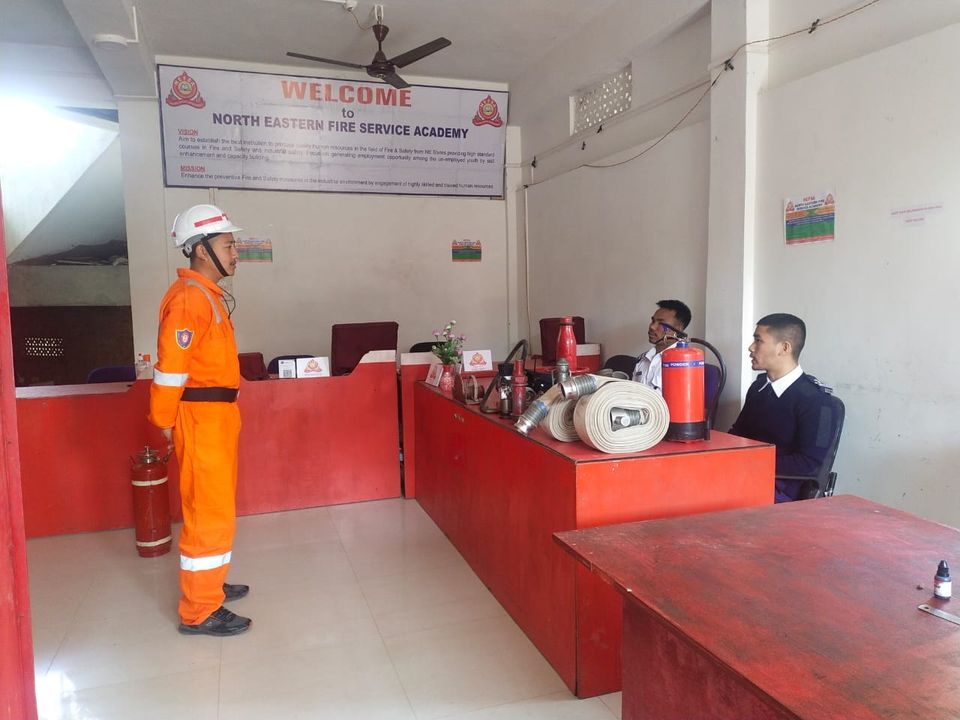Living in a PG (Paying Guest) or hostel offers convenience, affordability, and a sense of community but it also comes with shared responsibilities, especially when it comes to fire safety. Every year, fire incidents in hostels and PGs across India highlight one common issue a lack of awareness and preparedness.
The NEFSA emphasizes that understanding basic fire safety rules can make the difference between life and tragedy. Whether you’re a student, working professional, or hostel warden, these simple but crucial guidelines can help you stay safe and protect others.
1. Know Your Exits and Escape Routes
Upon moving into a new PG or hostel, make it a priority to locate all emergency exits and stairways.
-
Never block exits with furniture, shoes, or luggage.
-
Check if the emergency exits are clearly marked and illuminated.
-
Always have a mental map of the nearest exit from your room.
NEFSA Tip: Practice an evacuation route with your roommates once a month preparedness saves lives.
2. Avoid Overloading Electrical Circuits
Overloaded sockets are one of the most common causes of hostel fires. Plugging multiple devices like chargers, heaters, and kettles into a single socket can easily spark a fire.
-
Use certified extension cords with surge protection.
-
Unplug appliances when not in use.
-
Never use damaged or exposed wires.
NEFSA Reminder: Safety starts with awareness regular electrical checks can prevent deadly hazards.
3. Do Not Use Open Flames Indoors
Candles, incense sticks, and cooking stoves may seem harmless but can quickly lead to accidental fires in small, crowded spaces.
-
Avoid open flames in rooms.
-
Use battery-powered lights or diffusers instead of candles.
-
Cook only in designated kitchen areas.
NEFSA Alert: Most hostel fires start from open flames in rooms. Always follow the hostel’s fire policy strictly.
4. Learn Basic Fire Extinguisher Use
Every resident should know how to use a fire extinguisher. In case of a fire outbreak, quick response is crucial before it spreads.
-
Identify where extinguishers are placed on every floor.
-
Learn the PASS Technique — Pull, Aim, Squeeze, and Sweep.
-
Report missing or expired extinguishers immediately.
NEFSA Training Insight: Regular fire drills and hands-on training can make you confident in emergency response.
5. Never Block or Tamper with Fire Equipment
Fire extinguishers, alarms, and sprinklers are installed for your safety. Tampering with them or using them for fun can have serious consequences.
-
Keep fire safety equipment accessible at all times.
-
Do not hang clothes or decorations on fire sprinklers.
-
Ensure alarms and detectors are functional.
NEFSA Safety Note: Always report damaged or non-functional safety systems to your hostel authority.
6. Keep Flammable Materials Away
Items like aerosol sprays, deodorants, paints, and cleaning agents can easily catch fire. Store them properly and keep them away from heat sources.
-
Do not store excess gas cylinders or fuel.
-
Avoid keeping papers or fabrics near lamps or stoves.
-
Dispose of waste properly and regularly.
NEFSA Advice: A clutter-free space reduces fire risks significantly.
7. Know What to Do During a Fire
If a fire breaks out:
-
Stay calm and alert others immediately.
-
Activate the fire alarm if available.
-
Use the nearest exit — never use elevators.
-
Cover your nose and mouth with a damp cloth to avoid smoke inhalation.
-
Do not go back for personal belongings.
NEFSA Key Message: Your safety is the priority — materials can be replaced, lives cannot.
8. Participate in Fire Safety Training
NEFSA strongly recommends that hostel owners, wardens, and residents participate in fire safety training programs. These sessions help individuals learn practical fire prevention and evacuation techniques.
-
Hands-on training for using extinguishers and alarms
-
Fire evacuation drills
-
Emergency communication protocols
NEFSA Commitment: Through education and preparedness, we can make every hostel and PG a safer place to live.
Conclusion
Fire safety is not just the responsibility of hostel management it’s a shared responsibility. By following these fire safety rules and spreading awareness among your peers, you can play a vital role in preventing fire incidents.
At NEFSA, our mission is to build a culture of safety, preparedness, and resilience. Remember, a few moments of precaution can save many lives. Stay alert, stay safe!
Contact us today to know more about admissions, batch schedules, and course details.
Visit: www.nefsaindia.com
Location: Dibrugarh, Assam
For More Blogs:- Click here







